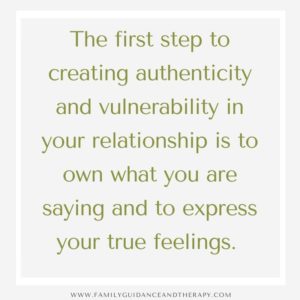By Yana Bachynsky
The Problem with Daily Communication
I was born and raised in Russia, and there, the way people communicated with each other was very direct and straightforward. For instance, if someone asked how someone’s day was, the response would never be “Fine, how is yours?” It would be a run-down of someone’s day, such as: “It has been challenging, I have so much to do with the kids…”
When I moved to America, I remember feeling the initial shock from the random pre-rehearsed small talk and some of the fake smiles I was seeing in people passing me by on the street. I was deeply yearning for authentic connection, for “keeping it real.”
The problem with daily communication is that the time-wasting small talk can actually cause anxiety and robs us of the opportunity to connect with one another on a deeper level. When a person constantly looks happy, it doesn’t actually mean they are happy. It’s true while we all have to wear masks at times to get through the day, but if we hide our true self consistently, it signals a lack of authenticity and a fear of vulnerability.
The purpose of this blog is to encourage you to strive towards authenticity in your communication, which in turn will promote greater openness and vulnerability and thus deepen your relationships.
Finding Your Authenticity
The first step is to do a self-inventory of the things that make you you. What are your convictions? Your morals, your passions? What matters to you in life? If someone were to say to you: “Tell me a little bit about yourself,” would you limit your response to listing your name, age, and job title? Are these the things that make you you? In this professional and busy world, at times we don’t have opportunity to really connect. In getting to know someone, it is very important to ask questions and share information that truly matters.
Unfortunately, due to years of unhealthy dynamics in the families, authenticity and vulnerability are not present in many families and relationships. As a therapist, I am convinced that this needs to change. Many people are suffering through their small talk and are not able to connect even with their own family on what truly matters to them.
Some barriers that block people from sharing their true selves might include unequal power dynamics or generational age gaps in the family. A daughter, for instance, might be afraid to say something her mother does not agree with due to feeling misunderstood or that her ideas aren’t respected.
Authenticity and vulnerability go hand in hand. In order to express your ideas and needs honestly, you have to expose yourself, which in turn carries the risk of getting hurt. In Brene Brown’s words, “vulnerability takes courage.”
Why You Need to be Vulnerable with Yourself and Others
Vulnerability is something very gentle and very strong at the same time. It is a gift to have people in life that draw out your vulnerability. The reason why so many people struggle with vulnerability is because they have tried opening up in the past but were shut down. If that is the case with you then think about addressing the boundaries you have with people. Any given relationship needs to be a safe space first before any vulnerability can take place. I will discuss this in more detail later in the blog.
Being authentically you means presenting yourself as you really are. The positive effects of being you is to feel like you are fully alive and present. Yet this requires vulnerability. One who is vulnerable allow for their emotions to surface and processes them instead of letting them pile up internally without processing them. Often, people who don’t process emotions shut down and become depressed. Your emotions matter and they are real. A good place to start processing emotions in a safe place is to attend personal therapy.
What I have noticed as a therapist is that people report having relationships in their life in which they cannot speak their mind or be themselves, which in turn really hurts them in the long run. These relationships may be with a friend, a relative or a significant other. The common theme is that the communication seems one-sided and that the person just tolerates whatever the other one is communicating without being able to provide honest feedback. Over time, the person who is not able to communicate their thoughts and feelings becomes sad, depressed or anxious about their situation and tries to look for a way out. However, it becomes very difficult to change unhealthy communication patterns that have lasted for many years.
The Connection Between Authenticity and Vulnerability
The reason why it is important to be authentic and vulnerable is because it can ultimately make you feel more understood. But what good is being understood by others if the thing they are “understanding” isn’t even your true self? Moreover, vulnerability in relationships creates strong connections and promotes depth in relationships over time. But how can one become more open and more honest?
The first step to creating authenticity and vulnerability in your relationship is to own what you are saying and to express your true feelings. According to the Gottman Institute, a very simple way of doing this is to start a sentence with: “I feel…” and to then follow it with “I need…”
Here is an example of a scenario in which you might use this: You have been on the phone with your best friend for an hour and have listened to your friend monologue about their dysfunctional relationship with their partner—for the 50th time in a row. At the end of these calls, you feel drained because at no time in these “conversations” do you get a chance to share about your own life. In other words, there is no reciprocity.
The solution is to stop this friend and say something along the lines of: “Dear N., I want to stop you because I have something important to communicate. I feel that we have been stuck in a loop in which you talk quite a bit about your relationship and I feel like a monologue is being dumped on me. Most of the time, I don’t get to provide any feedback and feel hopeless at the end of our conversations. What I need is for us to share the amount of time we talk about our day-to-day problems and for both of us to have time and space to provide some feedback to each other.”
This example illustrates how getting in touch with your own feelings and communicating honestly about what needs to change can yield a positive effect. Your friend might be taken aback at your straightforwardness but will certainly respect your authenticity. There is a reason why the expression “honesty is the best policy” exists.
So, the next time a friend asks you how you are doing, take courage and consider telling them how you really feel. If they are truly your friend, they’ll listen and care. No risk, no reward.

